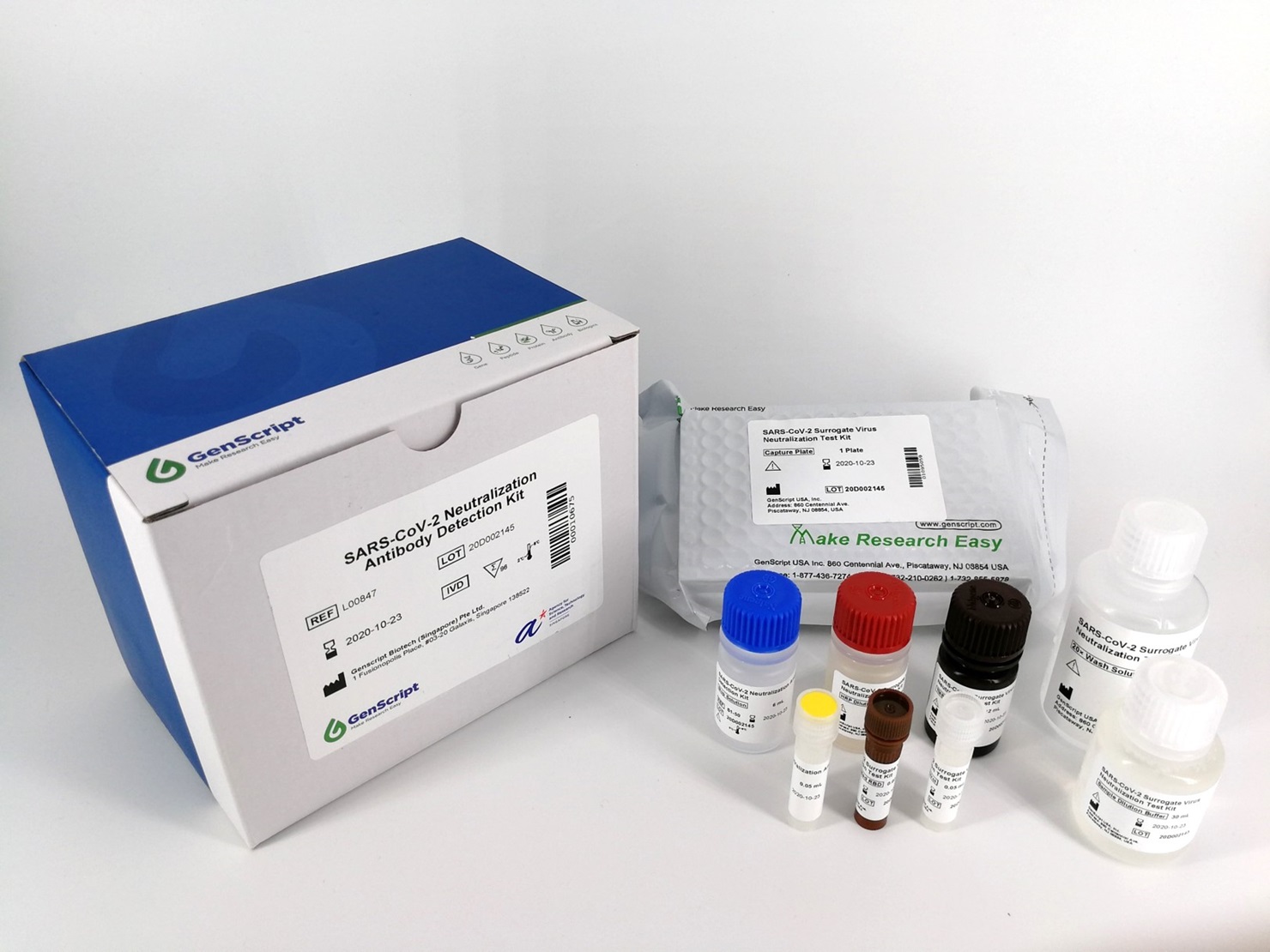
Less than six weeks after announcing the commercialisation of a novel serological test, Duke-NUS scientists reported the first testing data.

Invented by Professor Wang Linfa’s team from Duke-NUS and co-developed with A*STAR’s Diagnostics Development Hub and biotech group GenScript, the test was validated with two cohorts of SARS-CoV-2 patients from Singapore and China. The results, published in Nature Biotechnology, showed that the surrogate virus neutralisation test had 99.3 per cent specificity and 95 to 100 per cent sensitivity.
The other major advantage of this invention is that as a surrogate test, it does not require the live virus, and can be completed in as little as an hour in a standard biosafety level 2 laboratory.
THE SCIENCE BEHIND cPASS™ (YOUTUBE)
This surrogate virus neutralisation test contains 96 wells on a plate, which are coated with angiotensin-converting enzyme 2 (ACE2) receptors that the SARS-CoV-2 viruses uses to enter human cells. To this, researchers add a mix of serum from the patient
and a solution containing just the part of the virus’ spike protein that binds to the receptor, called the receptor-binding domain, which is fitted with a chemical signal. The signal lights up blue if the viral fragment was able to attach
to the ACE2 receptor, indicating that neutralising antibodies are not present in the serum.
This kit represents a key intervention against SARS-CoV-2 for clinicians as well as researchers. It can be used to determine infection rates, herd immunity, predicted humoral protection and vaccine efficacy during clinical trials.
The School’s commercial partner, GenScript, had also filed for Emergency Use Authorisation with the United States Food and Drug Administration.


THE cPASS KIT